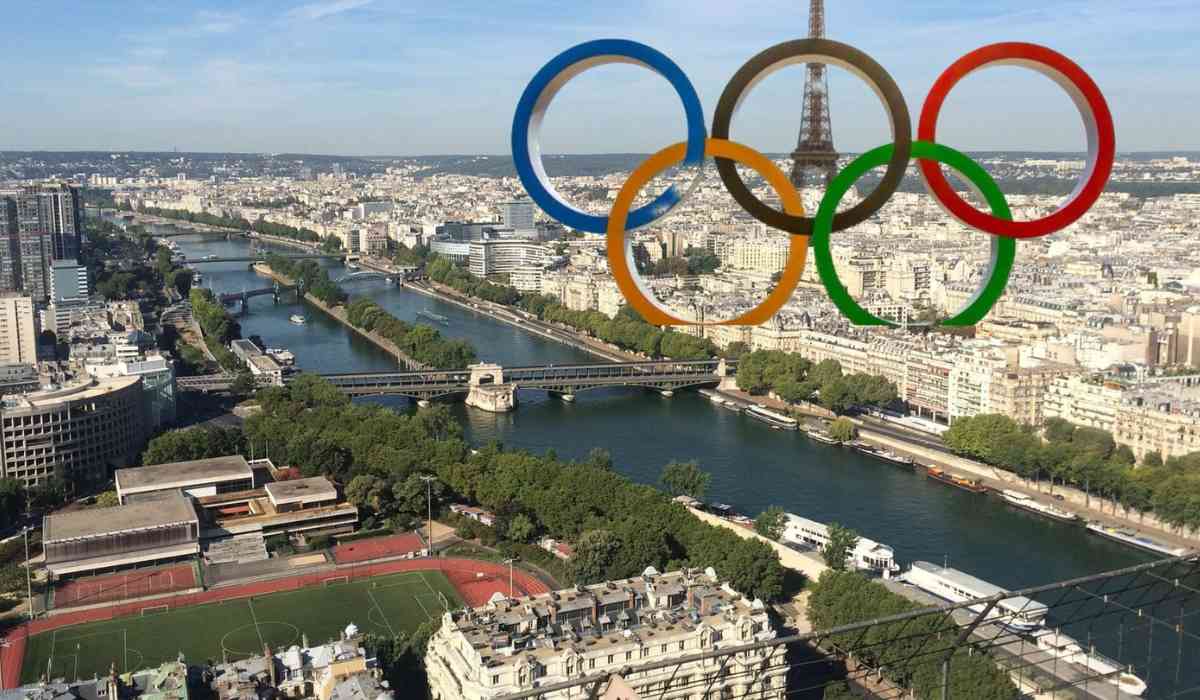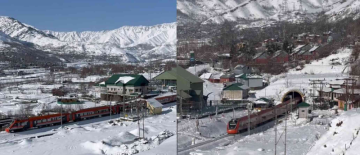The Seine River, situated at the heart of Paris, is celebrated for its scenic beauty and holds significant cultural significance in the city. It has been immortalised in numerous impressionist artworks such as Monet’s "Bathers at La Grenouillere" and Renoir’s "Seine River at Asnieres," and has inspired countless French songs. Seine remains a crucial water source, supplying approximately half of Paris's water needs.
But there's concerning news: just over a hundred days before the River Seine is set to host multiple Olympic swimming events at the Paris Games, a French water charity has called the pollution levels in the river "alarming." The river will host the triathlon and marathon swimming competitions and is a part of the Opening Ceremony event.
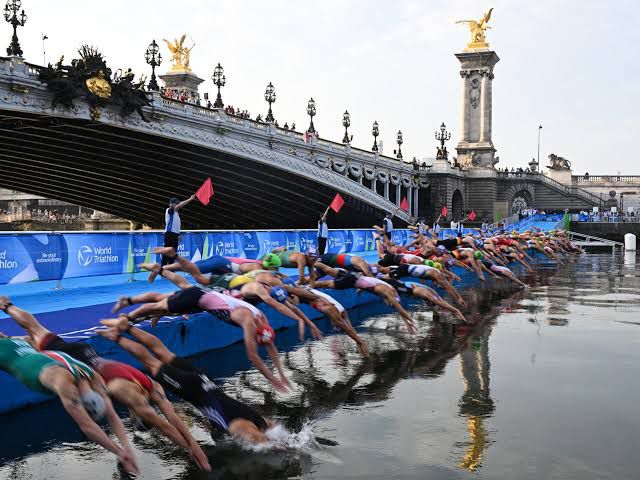
‘Bacterial level is Alarming’, says Surfriders Foundation
What has the Charity found? The Surfrider Foundation analysed six months of tests conducted by a laboratory. All tests but one indicated towards the river water being polluted and potentially dangerous.
Surfrider conducted their tests in collaboration with the laboratory Eau de Paris and the environmental analysis group Analyco-Co between September 2023 and March, focusing on the area where the Olympic sports are scheduled to take place, namely underneath the Alexandre III and Pont l'Alma bridges.
To address this seriously, the charity wrote an open letter addressed to its stakeholders. “We wanted to share with stakeholders its rising concerns about the quality of the Seine river but also the risks faced by athletes moving in contaminated water."
The international triathlon and open-water swimming federations, as well as European water quality standards, set limits on the concentration of two bacteria, E. Coli and enterococci, which are markers of the presence of faecal matter and can cause serious illnesses.
Shockingly, These bacteria were discovered to be double or even triple the maximum permitted amounts, during the tests. Out of 14 rounds of testing, only one had shown “satisfactory” results.
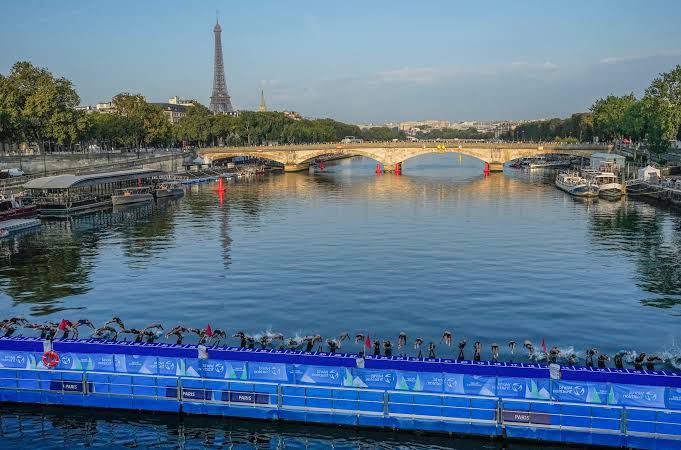
French Authorities Assures
Seine will host the opening ceremony and play a major role in the Games. She will also be utilized for the triathlon and marathon swimming competitions. The French government has been working hard to guarantee that the Seine is swimmable before the Olympics begin on July 26. Since 1923, swimming in the river has been prohibited. The Seine cleanup is expected to be a major legacy project from the 2024 Olympics in Paris.
During the last ten years, Paris has invested over £1.2 billion (€1.4 billion) in upgrading its stormwater and sewage treatment facilities, with the opening of a sizable new stormwater facility set for April.
Contrary to Surfrider's findings, some have emphasized that periods of high rainfall can overwhelm the city's sewage system, causing untreated effluent to flow into the river. The fact that the samples were taken during one of the wettest winters in thirty years is emphasized.
President Emmanuel Macron and Paris Mayor Anne Hidalgo have promised to create three public swimming areas in the river by the following year. Prior to the start of the games, both have promised to swim in the river.
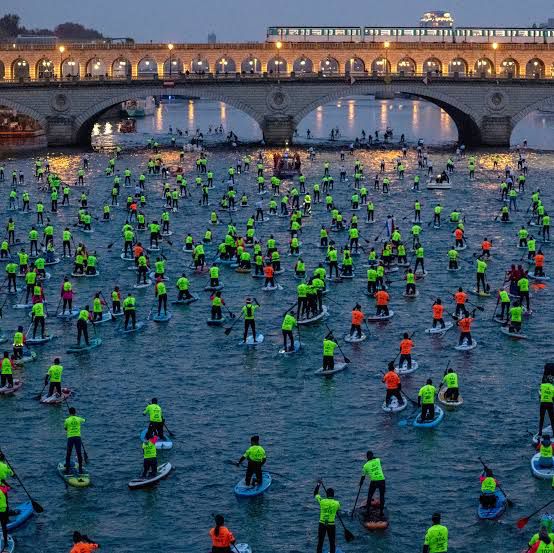
The top state security officer of Paris, Marc Guillaume, attacked Surfrider's “very poor knowledge of this issue”, adding: “There’s no point doing tests today in the Seine and comparing them with what will happen (in) summer.
The main cause for hope for the organizers of the Olympics and the authorities in Paris is that these levels were recorded during one of the wettest winters in thirty years.
Because of the frequent flooding of Paris' sewage system caused by heavy rains, untreated wastewater is dumped into the river. Olympic events in the river, according to organizers, can only take place in dry weather or with very little precipitation.
In the first quarter of 2024, there was unusually high rainfall, with 250,000 millimeters over three months, twice as much as in 2023, according to a statement from the Paris prefect's office. This heavy downpour made the water less clean.
Additionally, the water disinfection facilities were not operational during the winter but are scheduled to be initiated before the Olympics.
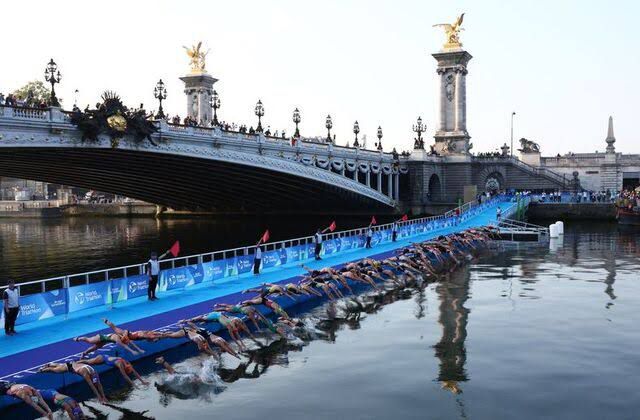
Other Championships called off
Three Olympic test events in the Seine were called off last July and August because of elevated E. Coli levels due to heavy rainfall and a defective sewer valve, resulting in the release of contaminated water into the river.
Planned women's and men's triathlons took place. But the Para triathalon and mix relays got canceled after high levels of E. coli bacteria were detected. Weeks earlier in July 2023, the 2023 World Aquatics Open Water Swimming World Cup had been cancelled due to high pollution levels.
But, The current Olympic open water champion, Brazilian swimmer Ana Marcela Cunha, recently urged Paris to have a backup plan in case the Seine is unsuitable for the events. Even though the organizers say they can move swimming events in the event of heavy rain, they have no plans to do so.
After tests near the Hammersmith Bridge stretch of the race revealed an average of 2,869 E. coli colony forming units (CFU) per 100ml of water, competitors were forewarned by organisers to cover any cuts and "take care not to swallow river water."
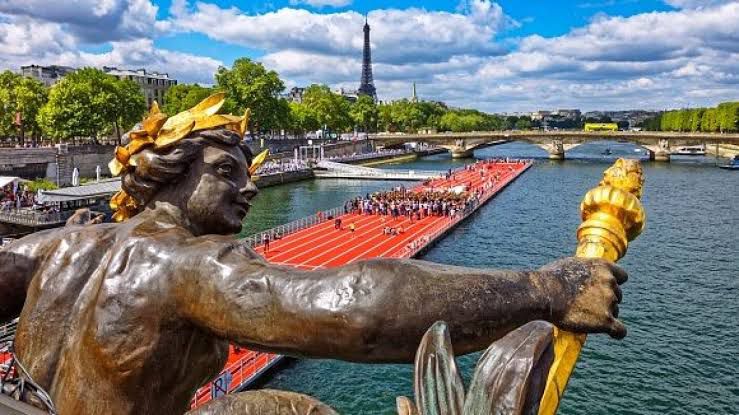
In the end,
Historically, Olympic open water swimming has frequently been plagued by pollution concerns. Swimmers protested against the Tokyo Bay water quality during the 2019 test event that preceded the Tokyo Olympics.Similarly, swimming in the contaminated Guanabara Bay during the 2016 Rio Olympics attracted a lot of attention.
Photo Credit: Multiple Sources
(Inputs from Various Agencies)
©️ Copyright 2024. All Rights Reserved Powered by Vygr Media.

